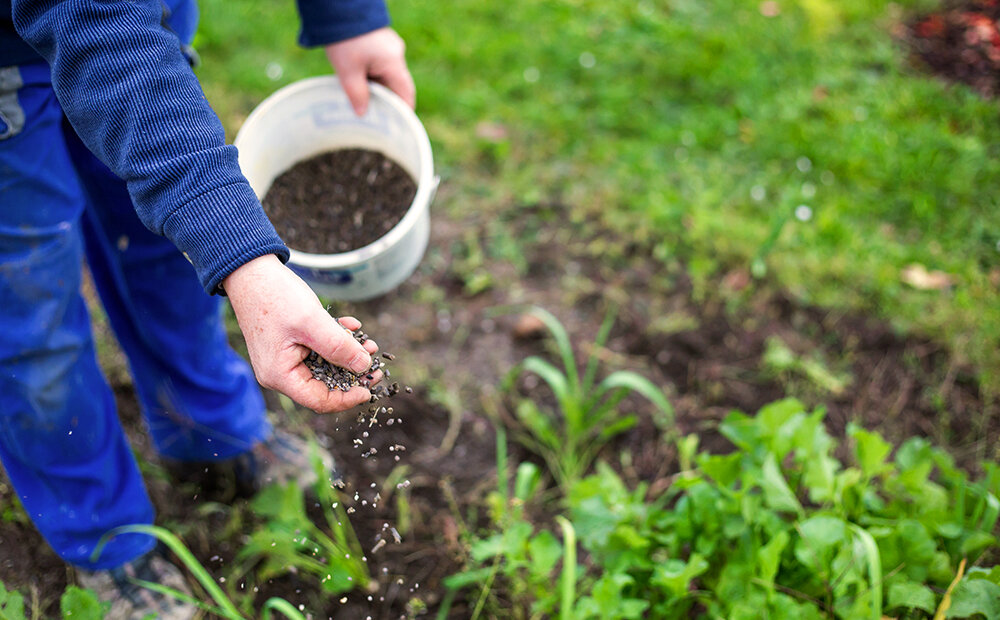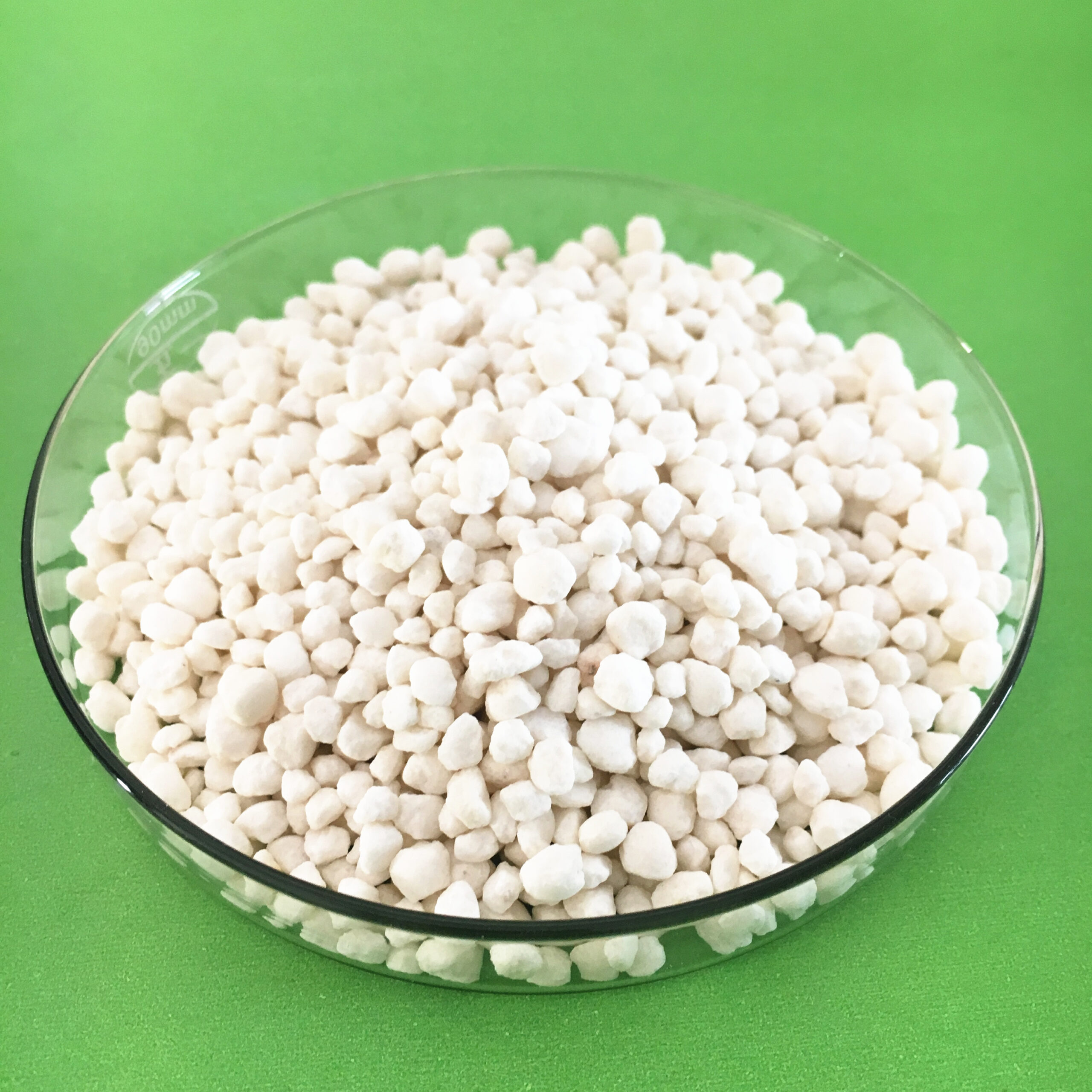Introduction to High Phosphorus Organic Fertilizer
A high phosphorus organic fertilizer is one the most important tools that gardeners have for greening and strengthening their plants, because the understanding of plant biology today is a far cry from what it used to be. For photosynthesis, respiration and energy transfer, it is indispensable. High phosphorus organic fertilizers are made from natural sources such as bone meal, bat guano, and rock phosphate, among others.
For promoting strong root structures and colourful blooms, one of the most important nutrients is phosphorus. ‘Phosphorus helps flowering plants increase root development and bloom more intensely. Phosphorous, which assists in the transfer of energy created by sunlight from one plant part to another, optimises growth for a flowering cycle,’ says Helen Flora, PhD, plant nutrition specialist. For any small area gardener establishing or improving flowering plants, this is an extra reason to put high phosphorus organic fertilizer at the top of their must-have list.
Aside from continuing the lifecycle of the plant itself, a gardener also supports a healthy ecosystem by using organic sources of phosphorus. Because organic fertilizers deliver nutrients very slowly, plants tend to absorb phosphorus only when they’re ready to utilise it, thus limiting runoff and contaminating the environment. With this introduction, this article leads us on an excursion on the advantages and how to use (high phosphorus organic fertilizers properly) under indoor and outdoor gardening conditions.
Benefits of High Phosphorus in Organic Fertilizers
Plant-care regimens that include high phosphorus organic fertilizers will also amplify the beauty and health of a wide variety of growing specimens, including blooming plants that require robust root systems to absorb nutrients to the flowering areas.
Improved Bloom Production: High levels of phosphorus also enhance the bloom production of flowering plants. The processes supported by this nutrient result in larger, more colourful flowers that bloom earlier and last longer. Flowering plants utilize phosphorus during their reproductive cycles so, when phosphorus levels are optimised, flowers can be more colourful and fragrant. Phosphorus is a favourite for adding to ornamentals and flowering houseplants.
Root Infrastructure: Roots are the structure essential for plant stability and uptake of water and minerals. Stronger, healthier roots are produced with phosphorus. This is for new plants needing additional support and older blooms in need of revitalisation and recovery.
Besides increasing plant aesthetic appeal and health, the benefits of using high phosphorus organic fertilizer include an increase in a plant’s resilience for fighting drought, disease and pests, enabling plants to stand up under trying conditions and not just when environmental conditions are favourable.

Organic vs. Synthetic Phosphorus Fertilizers
When deciding on the fertilization techniques for your garden, it’s important to consider both organic and synthetic phosphorus fertilizers. Each type has specific features and influences plants and nature in different ways, impacting long-term sustainability and plant health.
Comparison of Benefits:
- Nutrient Release: Organic fertilizers provide phosphorus at a rate that closely matches a plant’s natural absorption rate. This slow release minimizes risks such as nutrient leaching and over-fertilization. Conversely, synthetic fertilizers can offer an instant nutrient boost, useful in cases of acute deficiency but often leading to nutrient accumulation and environmental runoff.
- Soil Health: Organic fertilizers enhance soil structure by increasing organic matter, which improves water retention, aeration, and overall soil health. Synthetic fertilizers, while they may boost yields, can negatively impact soil health, leading to issues like reduced microbial activity and soil compaction.
Environmental Impact:
- Sustainability: Organic fertilizers are made from renewable resources and contribute to a closed-loop system, recycling plant and animal waste back into the garden. This reduces waste and decreases the need for chemical inputs. In contrast, many synthetic fertilizers are derived from non-renewable resources, including fossil fuels, particularly those that are nitrogen-based.
- Runoff and Pollution: Synthetic fertilizers are highly soluble, making them more likely to leach into waterways and cause eutrophication—leading to algal blooms and ‘dead zones’ where aquatic life cannot survive. Organic fertilizers, with their slower release, pose less risk to water sources and promote a healthier environment.
These distinctions help gardeners choose a fertilizer that aligns with their gardening goals and environmental values, encouraging the use of high phosphorus organic fertilizers for a more plant- and planet-friendly approach.
How to Apply High Phosphorus Organic Fertilizer
Applying high phosphorus organic fertilizers correctly is crucial for maximizing their effectiveness in enhancing plant growth and root health.
Application Techniques:
- Preparation: Ensure the soil is moist before applying the fertilizer to encourage nutrient absorption and prevent root burn.
- Method: For granular forms such as bone meal, sprinkle the fertilizer evenly around the plant’s base but avoid contact with the stems or foliage. For liquid forms like fish emulsion, dilute according to package instructions and apply to the soil around the plants. This method ensures that nutrients reach the roots where they are most needed without harming the plant’s foliage.
Dosage and Timing:
- Dosage: Adhere to the manufacturer’s recommended dosage to avoid over-fertilization, which can lead to nutrient runoff and potential harm to the plant.
- Timing: The best time for application is during the planting and transplanting phases, and at the early stages of growth when plants are setting flowers. Phosphorus is relatively immobile in soil, so it is crucial to apply it when nutrient availability and uptake are most critical.
Frequency:
- Growth Phase: Apply high phosphorus fertilizers every 4-6 weeks during the growth phase, particularly before and during flowering.
- Rest/Dormancy Periods: Reduce or withhold fertilization during the plant’s dormant periods, typically in colder months, to minimize nutrient overload and maintain soil balance.
By following these guidelines, your use of high phosphorus organic fertilizer will be effective and environmentally responsible, leading to healthier plants and blooms, well-maintained soil health, and reduced environmental impact.
Common Misconceptions and Mistakes
Some common misconceptions and mistakes regarding the application of high phosphorus organic fertilizer can cause difficulties for gardeners. By understanding these commonly misunderstood and misapplied facts, you can greatly improve your fertilizer usage and your plants’ well-being.
Over-Fertilization Risks:
- Nutrient Imbalance: Nutrient uptake is crucial for plant nutrition. However, excessive phosphorus can disrupt this balance. Soils rich in phosphorus may inhibit the uptake of other important nutrients such as iron and zinc, leading to deficiencies that impact plant growth and health.
- Environmental Impact: Overuse of phosphorus can also lead to environmental problems, such as eutrophication. Runoff from excessive phosphorus in the soil can cause algal blooms that deplete oxygen in the water and harm aquatic life.
Identifying Deficiency Symptoms:
- Signs of Phosphorus Deficiency: Plants deficient in phosphorus might show stunted growth, dark green leaves, reduced budding or fruiting, and purplish discoloration of leaves due to inhibited chlorophyll breakdown.
- Correction Measures: To address phosphorus deficiency, ensure adequate application rates of high phosphorus fertilizers like cover crops or compost. Additionally, check that the soil pH is conducive to phosphorus availability—extreme alkalinity or acidity can reduce its efficacy.
Addressing Misconceptions:
- Myth: More is Better: While phosphorus is essential for plant health, excessive amounts can be detrimental rather than beneficial.
- Myth: Instant Results: Another misconception is expecting immediate results from phosphorus application. Since phosphorus is slowly mobile in the soil, its benefits may not be instantaneous and can depend on factors such as soil type and existing nutrient levels.
By following best practices and avoiding these pitfalls, gardeners can enjoy healthier plants and contribute to environmental sustainability.

Conclusion: Optimizing Orchid Care with Organic Fertilizer
To summarize, high phosphorus organic fertilizer not only stimulates plants to blossom more beautifully but also activates robust root growth, contributing significantly to overall plant health. By nourishing the plants comprehensively, high phosphorus organic fertilizers encourage plants to bloom and sustain healthy growth in both roots and foliage. When used correctly, these fertilizers can greatly satisfy gardeners by enhancing the vitality and aesthetics of their plants.
Summary of Key Points:
- Phosphorus At Work: We’ve observed how phosphorus is crucial in developing healthy root systems and producing spectacular blossoms, providing the necessary framework for plants to thrive.
- Sustainability and Organic Benefits: The argument for sustainability supports the use of organic products. By opting for organic, consumers contribute to environmental health and reduce the reliance on synthetic alternatives.
Final Thoughts: Choosing high phosphorus organic fertilizer not only boosts plant growth but also aids in healing our Earth. Through careful selection and application, gardeners can identify the most suitable products to meet the diverse needs of plants and local soil conditions. This approach promises a more reliable and fulfilling gardening experience.
With these practices, gardeners are encouraged to focus on enriching the earth, ensuring that it remains green and vibrant, not just in theory but in reality.
FAQs: Common Questions About High Phosphorus Organic Fertilizer
Q1: How often should I use high phosphorus organic fertilizer on my plants?
A1: It depends on the requirements and growth habits of your plants. The general recommendation is to fertilize once every 4-6 weeks with high phophoris fertilizer during the silent period of the plants, and during the active growing period. Of course, during the periods when the plant is dormant, you reduce the frequency of fertilizing.
Q2: Can high phosphorus organic fertilizer harm my plants?
A2: If you apply high phosphorus fertilizers correctly, they are safe and ‘good’, but if you abuse them, applying more that the crops can use, you can cause nutrient ‘burn’ or nutrient imbalance problems. Stick to the rate directions.
Q3. What types of plants benefit most from super-phosphorus organic fertilizer?
A3: Yes, heavy phosphorus feeders – such as tomatoes, peppers and flowering plants in general – definitely prefer high phosphorus fertilizers because the roots grow strong and the flowers are more vibrant.
Q4: Do high phosphorus organic fertilizers work as quickly as synthetic ones?
A4. Yes, organic fertilizers provide slow-release nutrients that trickle down to the roots over time, unlike synthetic fertilizers that flush everything down at once. This slow-release allows the plant to grow consistently, but won’t make the leaf as green as if you had flushed it with synthetic nutrients immediately. This can be important if your plant is really deficient; otherwise, you’ll have to wait.
Q5: How do I know if my soil needs high phosphorus fertilizer?
A5:To adjust for this, you must realise that a soil test reflects the levels of an essential nutrient at a specific point in time. Your subsequent fertilisation will influence soil test results over time.
Q6: Is high phosphorus organic fertilizer better for the environment?
A6: Definitely, I believe that the organic fertilizers are more environmental friendly than the ones in synthetic form. To me this is because they are organic, the origin of their manufacture is natural, so it is assured that there are no risks of chemicall runoff and the ecosystem would be healthier both inside and outside the garden.
Here’s a curated list of scholarly references and resources about high phosphorus organic fertilizer:
- Managing Phosphorus for Crop Production – This article from Penn State Extension discusses the various types of phosphorus fertilizers and their applications. It covers the effectiveness of different forms like Monoammonium phosphate and Diammonium phosphate which are particularly high in phosphorus content.
- Environmental Implications of Excess Fertilizer and Manure on Water Quality – NDSU Agriculture’s publication highlights the environmental impacts of excessive use of fertilizers, including phosphorus. It discusses how phosphorus can lead to water quality issues such as eutrophication.
- Understanding Phosphorus Fertilizers – UMN Extension provides insights on how phosphorus fertilizers are applied and their effects on various crops. This resource is useful for understanding the practical aspects of using phosphorus in agriculture.
- Here’s the Scoop on Chemical and Organic Fertilizers – Oregon State University discusses the advantages of organic fertilizers, including those high in phosphorus like bone meal and rock phosphate. This article provides a comparison between organic and chemical fertilizers.







